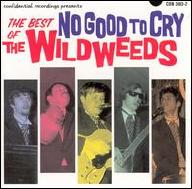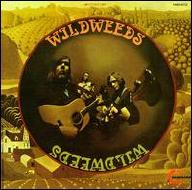Al Anderson's full-throated, growling vocals were impressive even at this early stage, as was his songwriting. Limited mostly to their Connecticut stomping grounds, however, the group never got to approach its considerable potential. The original Wildweeds broke up in 1969. Unpredictably, Anderson went into a country-rock direction with a new version of the Wildweeds, which released a self-titled album on Vanguard in the early '70s. Anderson recorded another obscure Vanguard effort as a soloist (Al Anderson) before joining NRBQ. In retrospect, the fairly wide-ranging reach of the Wildweeds' repertoire gave Anderson important preparation for the legendarily eclectic material performed by NRBQ. All of the Wildweeds' records are very hard to find; you should look hardest for the recordings by the first and hardest-rocking lineup. ~ Richie Unterberger, Rovi
The Wildweeds
formed
January 1, 1967 - January 1, 1971 (age 4)
Biography
Very popular on a regional level in southern Connecticut, the Wildweeds are remembered today (if at all) for their lead singer, guitarist, and songwriter, Al Anderson. Anderson would go on to join NRBQ, but in the late '60s he was the lynchpin of this interesting band. They most often sounded like a sort of garage version of the Rascals, playing blue-eyed soul with a raw edge. Their recorded output was limited to a few singles on the Chess subsidiary Cadet, some of which were pretty big hits in their neck of the woods, although only one (No Good to Cry) made even a slight national impact, reaching number 88 on the national charts. They weren't solely a Rascals knockoff, however; even in the limited space of their four Cadet singles, they explored fairly eclectic territory, mixing blue-eyed soul with garage rock, folk-rock, and the best sort of commercial late-'60s AM radio soul and pop.
Top Tracks
Albums
Videos
Close













